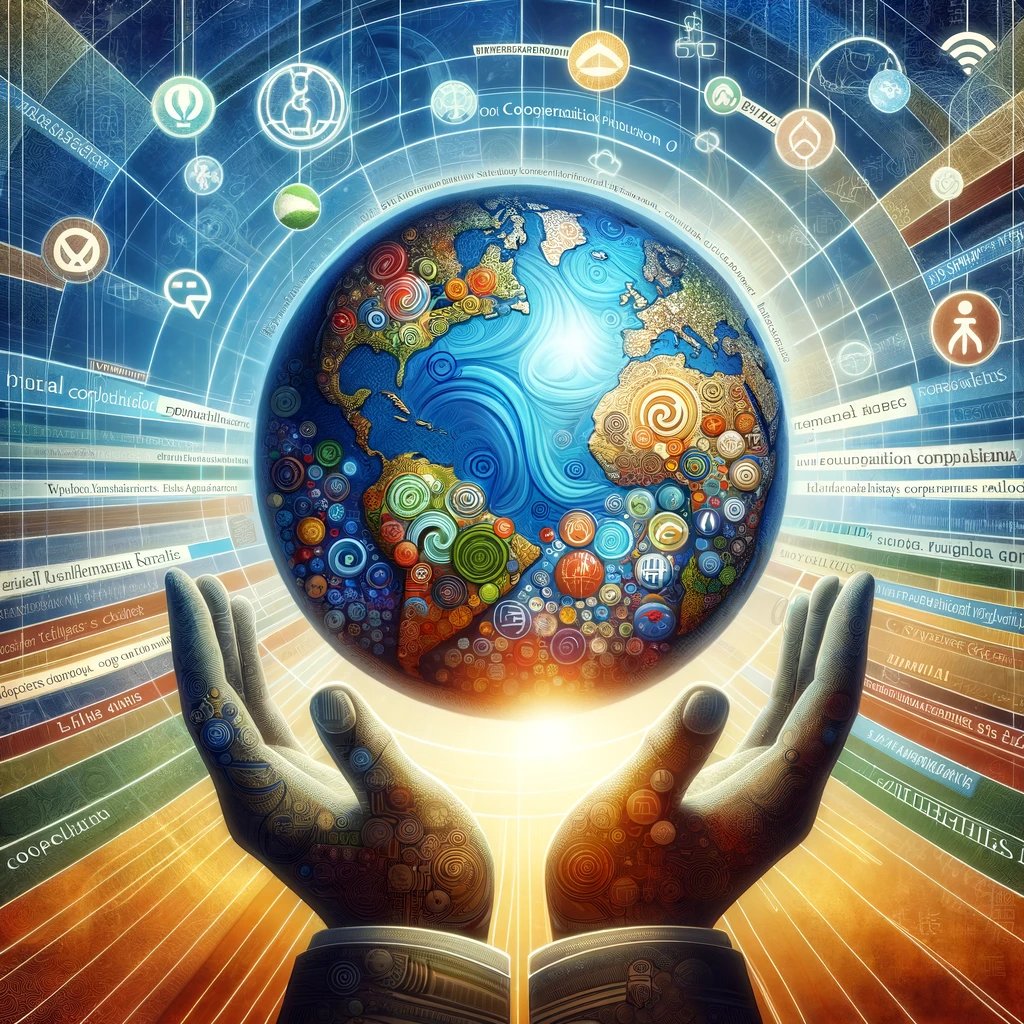Moral Diplomacy: Ethical Compass in International Relations
THE WORLD ORDER
3/10/20243 min read


Diplomacy is the art of making the impossible possible considering mutual national interests. But, in an era of rapid globalization, the art of diplomacy is not confined to mere business to strategic talks only. One more aspect is prominently teething in: "Moral Diplomacy".
Moral Diplomacy was introduced originally rooted in the notion of supporting nations with analogous beliefs. But, today it calls for a broader application: the promotion of mutual respect, understanding, and ethical considerations in foreign policy.
Why this is required? The answer lies in the fact that we see frequent breaches in international sensitivities, often resulting from unscrupulous comments by public officials. While seemingly diplomatic, such incidents reveal deeper cultural misunderstandings and prejudiced perceptions.
The Essence of Moral Diplomacy
Moral diplomacy in its contemporary guise steers the importance of anchoring international relations in moral and ethical standards. It encourages nations to pursue their interests with a profound respect for universal values and the dignity of peoples beyond their national boundaries.
But, it is easier said than done. Diplomatic faux pas occur due to individuals' tendencies to interpret global affairs through their own cultural biases and misconceptions. This is where the role of Moral Diplomacy creeps into the statecraft. Moral Diplomacy lies in its potential to bridge the divides. It promotes a form of engagement that respects the diversity and complexity of global cultures.


Case Studies of Diplomatic Missteps
India-Thailand Rice Procurement Controversy
Recently, Thailand's Ambassador to the WTO, Pimchanok Vonkorpon Pitfield commented about India's rice procurement program.
She was quoted as saying that India’s rice procurement programme at Minimum Support Price (MSP) for the public distribution system is not for people but for capturing the export market.
But she was not only at fault for disturbing diplomatic nerves, but also she got her facts wrong. India procures about 40 percent of the paddy produce to meet food security commitments. Remaining quantity is exported from India at market prices.
By implying that India was unduly dominating the export market rather than aiding its population, the ambassador not only misrepresented India's intentions but also strained bilateral relations.
Upon India's strong reservation and opposition on this comment, Thai authorities were quick to replace her. But, it highlighted the delicate nature of international diplomacy and the importance of sensitivity.
Taiwan's Labour Minister's Controversial Comments
Taiwan's Labour Minister, Hsu Ming-chun has also antagonized Indian sensitivities recently. She was talking about the recruitment of migrant workers from India's northeast based on "similar skin color and diets". It sparked significant backlash. This comment is intentional or ignorant, but it reduced individuals to stereotypes. It failed to recognize the full dignity and complexity of people's cultural and individual identities.
Brazil-Israel Diplomatic Row
President Lula da Silva of Brazil courted controversy when he compared Israel's military campaign in Gaza to the Holocaust. It led to a huge diplomatic rift between Brazil and Israel.
No matter who is on which side in the Israel-Hamas war, references to the Holocaust violate the historical sensitivity in international discourse.
It not only risked inflaming tensions but also betrayed a lack of understanding of the historical and emotional complexities at play for people in general.
Beyond Diplomacy: A Cultural Challenge
In the above examples, nothing significant could have changed in the positions of individual diplomatic stands had these statements were not spoken out. They arose because of a foundational lack of understanding and appreciation for the diverse backgrounds of human societies. In this context, it emphasizes moral diplomacy to grow to encompass not only ethical foreign policy principles but also a commitment to cultural competence and sensitivity.
Charting a Path Forward with Moral Diplomacy
Walking on the path of Moral Diplomacy requires a combined approach of the strategic elements of traditional diplomacy with a deep respect for cultural diversity. This requires educating diplomats on the cultural and historical contexts and initiating international dialogue with empathy and mutual respect.
Conclusion
Moral diplomacy, reimagined when a new world order is poised to emerge, stands as a guarantee for international relations to be guided by compassion, understanding, and ethical principles. The cases of India and Thailand, Taiwan, Brazil, and Israel, though regrettable, underscore the urgent need for a more culturally sensitive approach to diplomacy. Such a diplomatic approach — that sees beyond the immediate and embraces the rich mosaic of human experience.
Who We Are:
The Economic Nations champions global unity through economic collaboration, focusing on sustainable growth, reducing inequalities, and enhancing global relationships for mutual prosperity and peace.
PICTURE COURTESY:AI
PICTURE COURTESY:AI
Contacts
enquiry@economicnations.org
(xx) 98-11-937-xxx (On verification)
